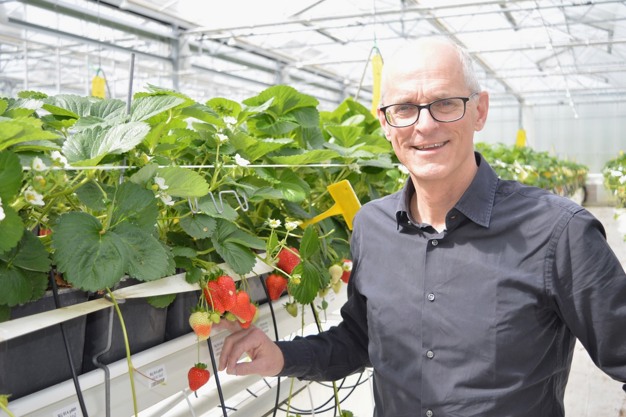When Vincent Deenen, CEO of Limgroup, took the stage at this year's ISFC, he was prepared for a lot of feedback, but perhaps not quite as much as he received. Earlier this year, Limgroup launched the first F1 Hybrid strawberry variety, Limore One. Hybrid varieties are standard in tomato and pepper cultivation, but for strawberries, this is not yet the case. "Limgroup is the first breeder to target the professional strawberry market with this," says Vincent.
Let's start at the beginning. Hybrid varieties result from crossing two or more different parent lines (often themselves improved through selection and breeding) to produce a new selection that combines the desired traits of both parents. This technique is known as hybrid breeding. Hybrid varieties often produce plants that exhibit better characteristics than either of the parents, a phenomenon known as the heterosis effect. "The first generation (F1) often shows superior traits."
The current standard strawberry varieties are clonal varieties, Vincent explains. "Clonal varieties result from clonal propagation, where new plants are produced through vegetative reproduction techniques. In the case of strawberries, this means cuttings rather than seeds."
Thus, hybrid varieties are designed to improve performance by combining the desired traits of two or more parent lines.

With the above in mind, the advantages of F1 Hybrid strawberries are now easy to list: the breeding process gains much more momentum, and so does propagation. This speed allows retail and trade to respond more quickly to market developments, and strawberry growers have stronger, more uniform starting material at their disposal. Stronger plants mean less need for crop protection agents, from which the consumer directly benefits through a more sustainable product. Finally, propagators run less financial risk (due to the time savings that come with sowing). And perhaps the most important argument has not yet been mentioned: from start to finish, huge strides can be made with F1 Hybrid strawberries in terms of the sustainability impact of strawberries. This is something that the strawberry sector is increasingly focusing on.
Strawberry Cultivation 2024
The acreage of protected cultivation of strawberries has expanded in recent years. Moreover, the cultivation method has changed drastically; where open-field cultivation was still very common a decade ago, the cultivation technique has evolved further. Now, cultivation is done on racks, or under foil or glass. Vincent remarks, "It's quite odd, to say the least, that the varieties have not kept up with this development. You can imagine that an open-field strawberry variety requires different traits than the current substrate cultivation method. The F1 hybrid varieties do address this. The heterosis effect of F1 Hybrid varieties ultimately results in increased growth speed, increased production, improved fruit quality, disease resistance, and uniformity in production."
Limgroup is on a fast track with this breeding technique for strawberries. Vincent says, "We expect that a few new varieties will come out of our pipeline every year. We have the momentum. By 'we', I mean all parties that have joined to realize this transition in the strawberry sector: Gipmans Planten, Van den Elzen, Van der Avoird Trayplant, FruitMasters, and Delphy ISFC. Together, we're making quite an impact in the strawberry sector. We see this as the future for the strawberry sector. We are more than convinced."
For more information:
Vincent Deenen
Limgroup
Tel.: +31 77 397 99 00
vdeenen@limgroup.eu
www.limgroup.eu
